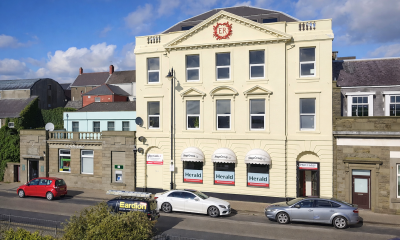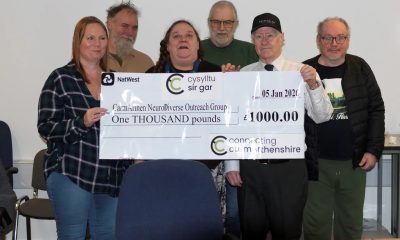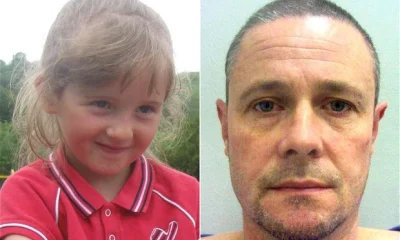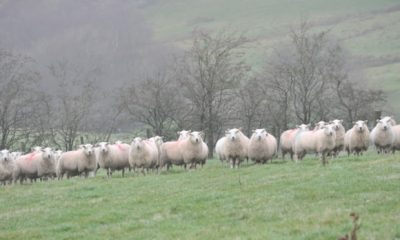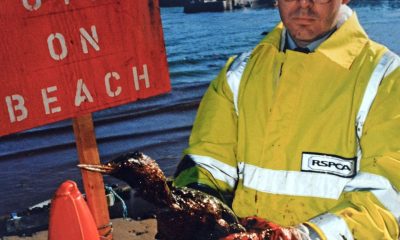News
Betty Guy ‘murdered by her daughter and grandson’
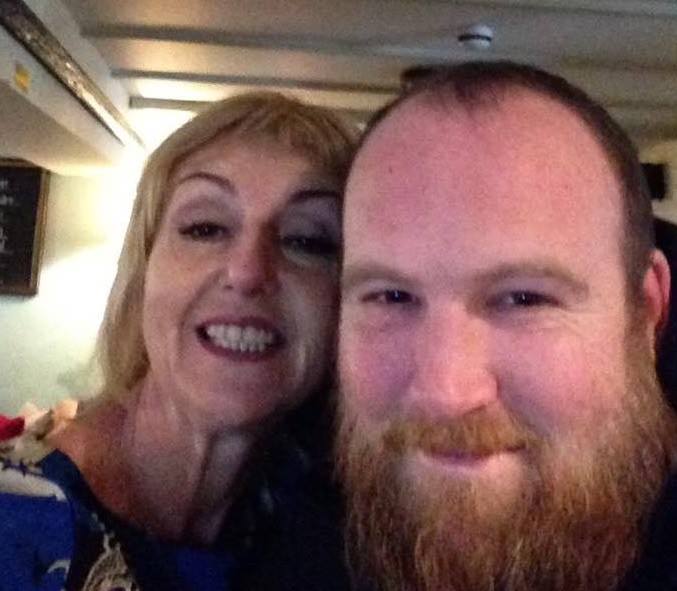
BETTY GUY was murdered by her own daughter and grandson, a jury heard today (Jan 9).
Penelope John fed her crushed transquilisers and alcohol and Barry Rogers smothered her with a pillow, it was alleged.
John, aged 50, of Union Terrace, St Dogmaels, and Rogers, 32, of High Street, Fishguard, deny murdering 84 year old Mrs Guy on November 7, 2011, at her home in Hillcroft, Johnston, near Haverfordwest.
Paul Lewis QC, prosecuting at Swansea Crown Court, said at first Mrs Guy’s death was put down to natural causes and her body was cremated soon afterwards.
But in the following years, he alleged, Rogers made a series of confessions to women he later had relationships with.
And police tape recorded more confessions after they secretly bugged John’s home and heard both of them discussing what they had done.
They included, said Mr Lewis, Rogers telling his mother: “But I did it. No honestly you have got nothing to worry about, it’s me that’s the one that’s done the act.”
Later they became concerned about whether Rogers had spoken about John putting tablets into Mrs Guy’s whiskey on a mobile telephone or put it in a text.
Rogers could be heard saying, softly, to John: “Are you starting to crack? Keep our story the same.”
John was taped saying: “No, I can’t remember. Did I text you when I said I crushed the diazepam up and I crushed zopiclone and put it in her….
“No, I would not have text that to you Barry. On reflection, I would have told you on the telephone.”
Rogers allegedly replied, “On the phone, yeah. I’m sure we spoke on the phone about it.”
Another recording caught Rogers, referring again to mobile telephones, saying to John: “But it’s f***ing technology like, a slip of a word here or there and we are in deep s**t like, we’re in jail for life.”
Mr Lewis said the prosecution case was that both Rogers and John had decided to end Mrs Guy’s life.
At 2.48am on November 7 John dialled 999 and said her mother had died. She said she had been suffering from stomach and bowel cancer, both of which were untrue.
She also said Rogers was in the house.
Because Mrs Guy was to be cremated her body was examined by two doctors. Dr Roger Burns noted small pinpoint bruising on the left side of her face.
No postmortem was carried out and the cremation went ahead at Narberth.
Rogers developed a relationship with Sandra Adams, who had been a junior school pupil in Haverfordwest with him many years before.
In November, 2015, Miss Adams went to the police to say Rogers had told her that he had smothered his grandmother with a pillow and an investigation began.
Detectives traced his estranged wife, Lisa Watkins, and another woman he had had a relationship with, Rhianne Morris.
Mr Lewis said they discovered that Rogers had also confessed to them.
The defendants were arrested on October 5, 2016.
While they were being interviewed bugs were placed at John’s home and on their release Rogers was granted bail on the condition he stayed with his mother.
“Almost as soon as they got in they began to talk,” said Mr Lewis.
When Rogers was re-interviewed and told about the tape recordings, he claimed to have made the statements ‘to take the p**s out of you pigs’.
Rogers, a former soldier, told police he knew the house had been bugged because he had bought a bug detector on EBay the day after he and his mother had been released on bail.
But, said Mr Lewis, the incriminating conversations had been recorded in the early hours of the morning or their release and ‘well before Barry Rogers could possibly have bought any bug detector’.
Mr Lewis said Rhianne Morris had told them that in 2010 she had moved in with Rogers, then living at 6 Rhydyfelin, Cardigan. Later, they moved to Frome in Somerset.
Late on November 6, 2011, Rogers received a telephone call from his mother and he could be heard saying: “It’s time, is it?”
Rogers then drove to Johnston and telephoned Miss Morris in the early hours of the following day to say ‘his Nan had gone’.
He allegedly told Miss Morris that John had given Mrs Guy ‘a load of tablets and a bottle of whiskey’.
Their relationship deteriorated and during a heated argument Rogers allegedly said to Miss Morris: “You want to be careful, or I’ll do to you want I did to her.”
Rogers allegedly picked up a pillow and held it to his face, saying to Miss Morris: “I’ll do it while you’re sleeping and you won’t know.”
Both John and Rogers deny having any involvement in Mrs Guy’s death.
t was now too late for anyone to prove medically how Betty Guy died, the jury heard.
Her body was cremated four days after her death.
But, said Paul Lewis QC, the prosecution would still show that she was suffocated as the result of an agreement between the two defendants.
After police had become suspicious about how she had died a Home Office forensic pathologist, Dr Deryck James, had reviewed her medical history and the notes made by the two doctors who had examined her body before she had been cremated.
Dr James concluded that although she had suffered ill health she had not any terminal illness.
Dr James said he noted that bruising had been visible on Mrs Guy’s face.
“In his opinion where a person is found dead, is face up and has not been the subject of any resuscitation attempts, then such petechiae (bruising) warrant further investigation because they raise the question of there having been pressure applied to the face or neck and thus the possibility of suffocation.
“However, such petechiae do not point inexorably to there having been an obstruction to Mrs Guy’s breathing and, from a medical standpoint, Dr James cannot now rule out that Mrs Guy suffered a natural death.
“The medical evidence cannot therefore provide any certainty as to how Mrs Guy died.”
He told the jury, “You will have to decide upon all the evidence that you hear.
“Did she die of natural causes as the defendants contend or, as we allege, was she suffocated as the result of an agreement reached between the two defendants.
“We submit, however, that she did not die from natural causes and that the defendants did not tell the truth in interview.
“Instead, they lied to try and conceal the arrangement they had made and the steps that they took to end Mrs Guy’s life.”
The trial continues and is expected to last for three weeks.
Education
Leadership questions raised after Milford Haven school stabbing
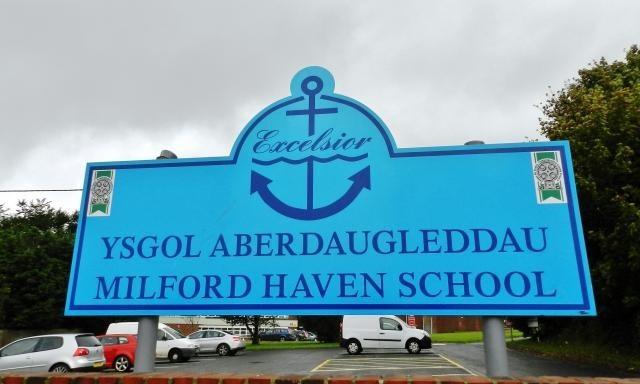
Headteacher absent as council confirms support plan and oversight visits
CONCERNS have been raised about leadership and staffing at Milford Haven Comprehensive School following last week’s alleged stabbing of a teacher on site.
The Herald has been contacted by a member of teaching staff who described the school as “rudderless” in the days after the incident and questioned whether enough senior management support was in place.
The teacher, who asked not to be named, said staff morale had been affected and claimed there had been little direct communication from the headteacher, who has been absent due to injury.
They said: “We teachers are all saying the same thing. The school feels rudderless. This is a time when a leader needs to step up and let us know they’re still in charge and concerned.”
Concerns were also raised about administrative capacity, with the business manager role reportedly unfilled.
A spokesperson for Pembrokeshire County Council confirmed the current arrangements.
The council said headteacher Ms C. A. Morris remains in post but is currently absent, with deputy headteacher Mr Daryl John deputising.
It added that the business manager position is a matter for the school.
Additional support has been put in place for staff and pupils, including the Education Psychology team on site, access to counselling services and an increased presence from the School Police Liaison Officer throughout the week.
The authority also said the Director of Education is in daily contact with the deputy head.
In terms of oversight, the council confirmed Steven Richards-Downes, Director of Education, has visited the school 35 times and met staff on two occasions. Cllr Guy Woodham, Cabinet Member for Education and Welsh Language, has made eight visits since taking up the role in May 2019.
Last week’s incident saw a 15-year-old male charged grievous bodily harm with intent and possession of a bladed article.
At an initial hearing it was explained that the teacher, who was named as Vicky Williams, has since been discharged from hospital.
The prosecution explained to the court that the boy attacked Williams with a kitchen knife.
The case has been sent to Swansea Crown Court.
Community
Facebook ‘news’ site targeting Herald editor collapses after community backlash
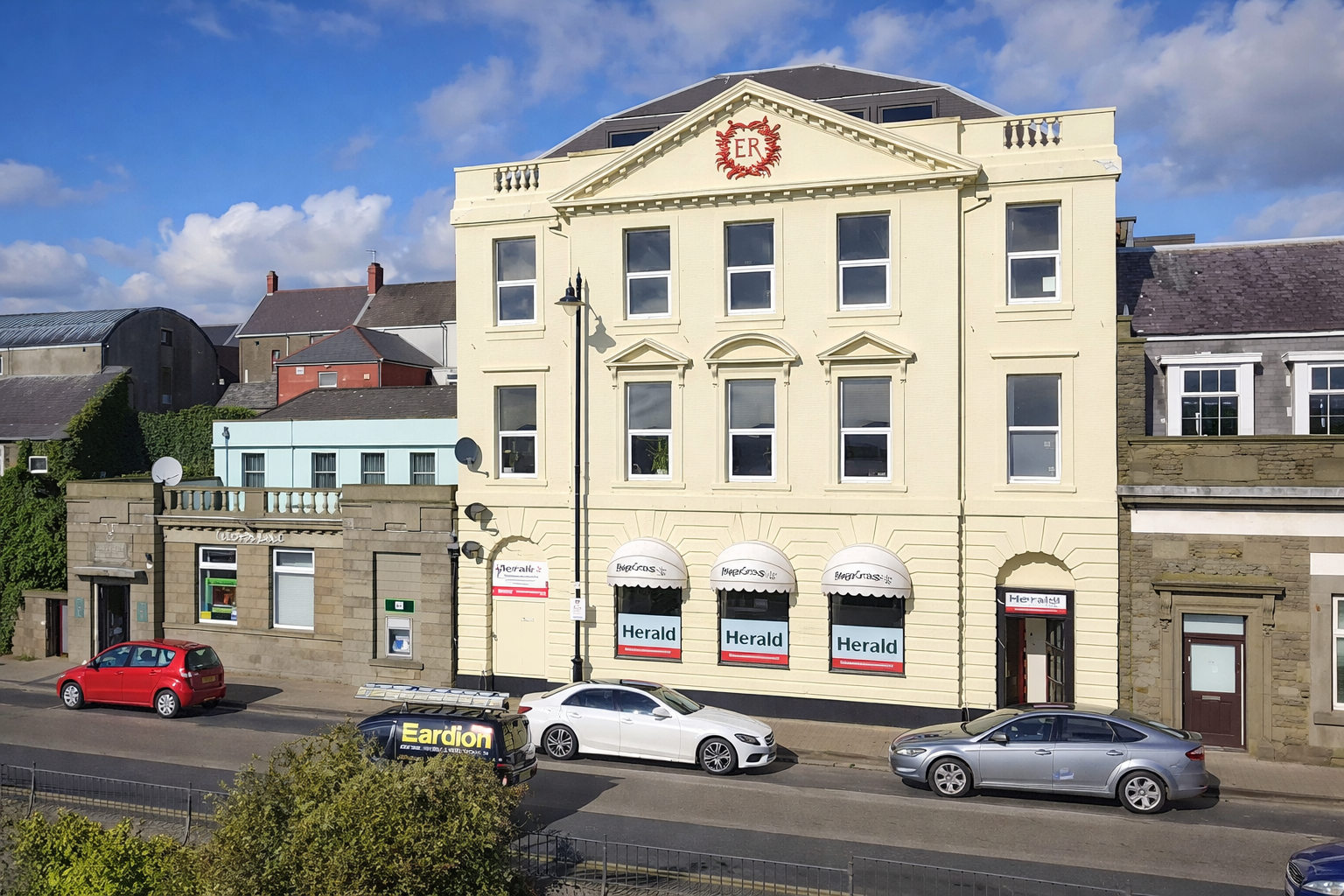
Page disappears hours after offensive post sparks outrage across Pembrokeshire
A FACEBOOK page that presented itself as a local news outlet but repeatedly targeted The Pembrokeshire Herald and its editor has disappeared following a wave of public criticism from residents and charity workers.

The page, operating most recently under the name Clear Line News, published a lengthy post on Sunday (Feb 9) describing Pembrokeshire in highly offensive terms and mocking community groups, volunteers and local reporting.
Within hours, the post triggered widespread condemnation online.
By the end of the day, users reported the page had changed its name to “The Devil’s Feed” before becoming unavailable altogether.
Criticism arose after Marty Jones, PR manager for Sandy Bear Children’s Bereavement Charity, shared a screenshot of the post on his personal Facebook page and questioned its tone.
Dozens of residents replied, describing the language as “vile”, “nasty” and “beyond comprehension”.
Several said they had been blocked by the page after challenging it.
Others expressed particular anger at comments they said were directed towards a bereaved mother connected to a local fundraiser.
One commenter wrote: “How they can speak to a bereaved mother that way is beyond my comprehension.”
Name change and closure
As criticism mounted, users reported the page had been renamed before disappearing completely.
By Monday morning, it could no longer be accessed.
Earlier identity
The page’s history has also drawn scrutiny.
Before operating as Clear Line News, the account previously used the name “Dyfed-Powys Neighbourhood Watch”, presenting itself in a way that some residents believed suggested an official or community safety organisation.

A company using a similar name — GWARCHOD Y GYMDOGAETH DYFED-POWYS NEIGHBOURHOOD WATCH LIMITED — was incorporated on Nov 4, 2024, according to Companies House records.
The filing listed the director as Ajay Owen, recorded as “Lord Ajay Owen”, with a correspondence address in Llanfyrnach.
The company’s stated activities included public relations, communications and public order and safety functions.
Companies House records show the company was dissolved on Feb 18, 2025.
During the period when the page appeared to carry Neighbourhood Watch-style branding, it accumulated more than 1,000 followers, including engagement from public bodies such as Mid and West Wales Fire and Rescue Service.
After several rebrands, the page later emerged as Clear Line News in late 2025, adopting the look of a local news site.
Much of its content, however, focused on opinion pieces and attacks on local institutions and individuals.
Distancing statement
Following Sunday’s controversy, Mr Owen posted a statement saying he previously owned the page but no longer controlled it and had requested its removal.
Shortly afterwards, the account disappeared.
He told The Herald in December that he had sold the page for £10 within days of relaunching it under the new name. The purported new owner could not be contacted and no independent details confirming the transfer were provided.
Community response
While Pembrokeshire residents accept robust debate and scrutiny, many said they rejected what they saw as inflammatory or abusive social media content masquerading as journalism.
One resident wrote: “We should be grateful for where we live and try to make it better, not tear it down.”
Whether the page returns under another name remains unclear.
For now, it appears a site that set out to criticise the community ended up undone by that same community’s response.
Community
Nacro grant boosts neurodiverse support in Carmarthen

A £1,000 grant from Nacro is set to strengthen grassroots support for neurodivergent children, young people and adults across Carmarthenshire.
CANDO (Carmarthen Aberystwyth Neurodiverse Outreach Group) has secured the funding through the Connecting Carmarthenshire Preventative Service, enabling the volunteer-led organisation to expand its practical, person-centred work with local families.
Operating under the message “We see your future whatever the past”, CANDO supports people who often struggle to access the right help, feel heard, or find stability in everyday life. The new funding will increase capacity, provide resources for inclusive sessions, and improve access to early support for those who might otherwise slip through the net.
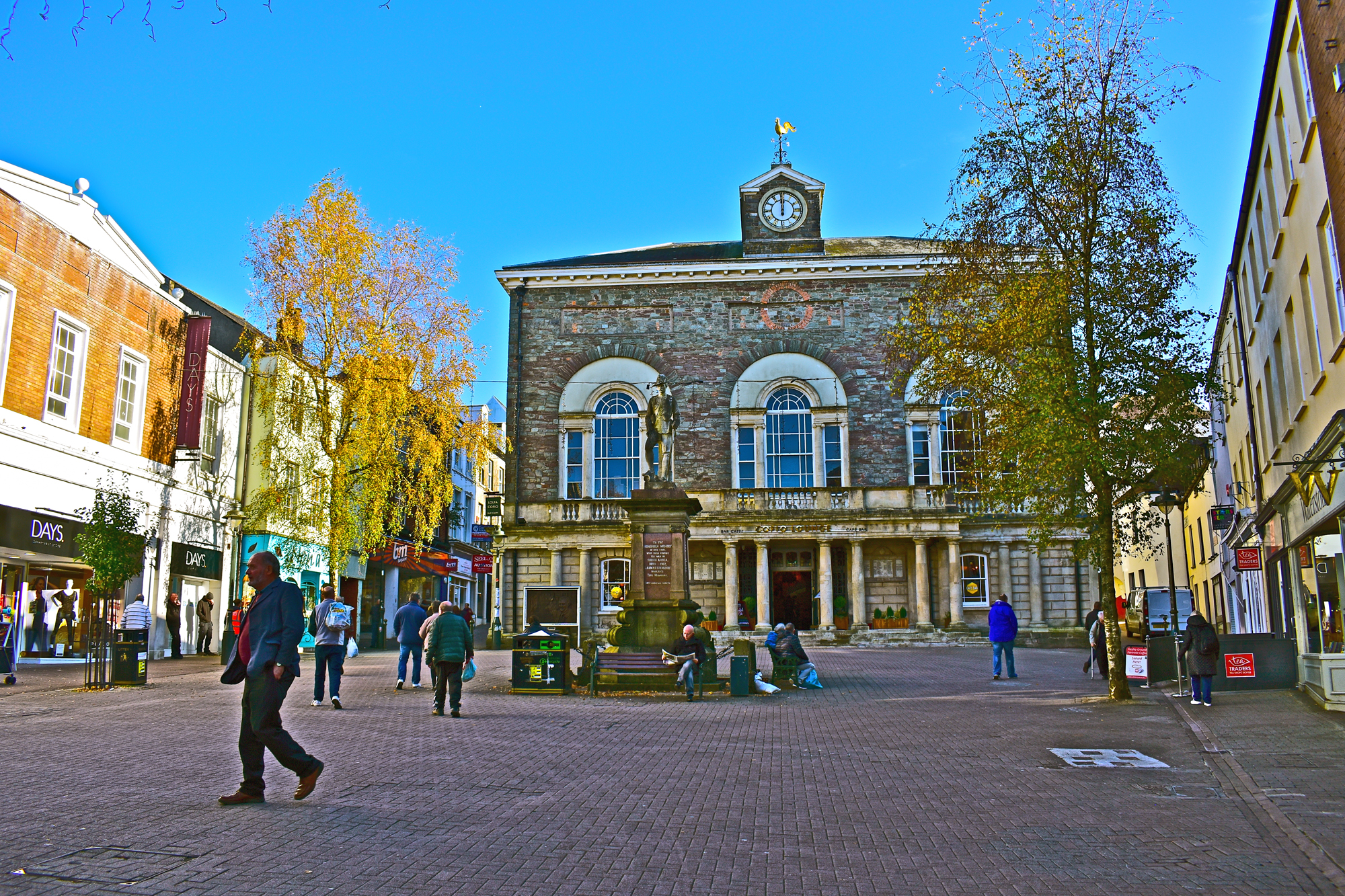
The group works closely with individuals and families to reduce barriers and build confidence — whether through education guidance, wellbeing support, advocacy, or help navigating local services. Leaders say the grant will allow them to respond more quickly to growing demand and keep sessions welcoming, accessible and consistent.
A CANDO spokesperson said: “This grant is amazing news for our community. Neurodivergent people can face extra pressures — from isolation and anxiety to difficulties being understood in education and services. This support will help us reach more people, provide practical help, and keep showing up for those who need someone on their side.”
Nacro’s wider mission mirrors that approach. The charity works across education, housing, justice, health and wellbeing, providing tailored support to help people build independence and move forward. Alongside frontline services, it also campaigns to remove systemic barriers and give disadvantaged people a stronger voice.
For CANDO, that bigger picture is felt locally. Families often face complicated pathways, long waits and fragmented services, and need clear guidance and community-based help that understands neurodiversity. By intervening early — before challenges escalate — the group believes it can improve mental health, education outcomes and overall wellbeing.
The £1,000 grant will fund additional outreach, materials and practical resources, helping more people feel safer, more confident and better equipped to move forward.
CANDO added: “We’re proud to work alongside Nacro’s vision of a society where everyone has the chance to succeed. This funding will do real good — right here in Carmarthen and beyond — and we’re grateful for the belief it shows in our community.”
-

 Health5 days ago
Health5 days agoHealth board targets rise in steroid and gym drug use across west Wales
-

 Crime6 days ago
Crime6 days agoSex offender jailed after living off grid in Pembrokeshire and refusing to register
-

 Crime5 days ago
Crime5 days agoTeacher injured and teenager arrested for attempted murder at Milford Haven School
-

 Business1 day ago
Business1 day agoComputer Solutions Wales under fire from customers
-
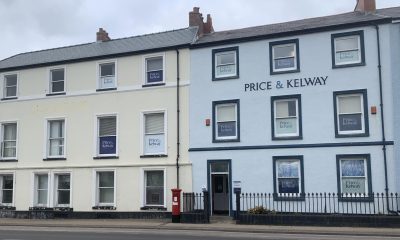
 Business4 days ago
Business4 days agoSix-figure negligence victory leaves retired builder trapped in divorce limbo
-

 Crime7 days ago
Crime7 days agoJohnston man remanded in custody over knife and assault charges
-

 News6 days ago
News6 days agoReform appoints Dan Thomas to lead party in Wales
-

 Crime7 days ago
Crime7 days agoProvisional licence holder admits drink-driving through town centre









